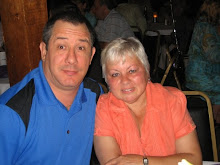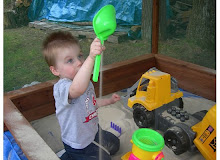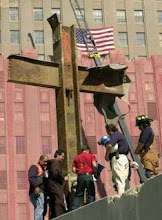My parents used to say that they had snow so deep, they could jump out into a heap from their shed window, located just off the porch. Quite possibly, it was were they kept their wood. Housing was different then. Coal came down shoots from side windows, or bulkheads, directly into the bin located in the cellar. Basements had dirt floors. They also used wood which they bought by the cord, then chopped and stacked. Everyone had chores, the ladies did the dishes, looked after the children and cooked meals. Most clothing early on was made, as well as blankets and draperies. (I had a wool one, until recently, which was made from my mother's aunts sheep farm.) Everyone crocheted and knitted sweaters and socks and purses and afghans. Set tubs were brought in on Saturday for the bath, and Sunday evening for Monday's laundry. They would starch the whites, roll and place them in a cold area, then iron them with a hot and heavy flat iron. They had a stove in the kitchen and a coal burning one in the parlor. (No central heat). The family huddled together, played cards around the table, keeping warm by wearing long-john's and layered clothing. Some people had shallow fire places in their bedrooms, which were fed by every crack and crevice from surrounding windows and doors. Most children slept four to a double bed, three across and one at the bottom. Canopy beds were not as popular, as the previous generation, which provided extra protection around the feathered mattress. When they lay in those beds, they would sink down and they were wrapped as snug as a bug. Homemade blankets were used, made from scraps and designed with cotton batting. Northern rooms were less utilized than southern exposures, as they preferred the morning sunlight and the warmer temperatures. Shutters were not just for show. Tasks were performed by light exposure. Sewing was done during the day.
Rooms were literally closed off until springtime. (My mom referred to the extra storage room, as the cold room). My dad said there was no need to worry about the pipes freezing, as their was no indoor plumbing. My dad used to talk about sit baths, and set tubs. Sponge baths from a basin, and water warmed from a kettle, which was drawn from the well, was how they washed. Woman wore their hair in an up sweep sometimes with a covering which required less frequent shampooing. His mom would make four breads at a time, on a Saturday, and he loved cocoa and toast. Hardy meals kept them warm. He remembered his father fishing, hunting for rabbit which his mom prepared on Sunday, the chicken coope, vegetable gardens, (smelly mulched water in rain barrels) his cat and dog. Making wine in the wine cellar. Prize winning strawberries and tomatoes, fresh eggs and real cream. He had a chamber pot and remembered using the out-house. They did have electricity, although his mom who was the daughter of a Blackfoot princess, did not when she was young. She scrubbed her wash in the Quinnebaug River.
Talk of Christmas, Thanksgiving, football, baseball, apple pie, meat pie and Fourth of July. Activities consisted of cards and games and the radio replaced the fiddle. I recall him saying that the meat wagon would come around, with all the flies. Ice blocks for the ice box. His dad worked at the American Optical Co., which is where he died, and was layed out in his own house. It was a life which required common sense, thriftiness and prayer. They were large close-knit families and lived simply. Every child was both wanted and a blessing. They valued each other, not things.
My mom was a twin delivered at home. And my aunt was 2 pounds, placed behind the stove in a shoe box to keep warm.
Snow was enjoyed by them, it meant coasting down a hill on a sled. The time was during the great depression, and they had little, still they made their own fun.
It was during WWII and they recycled everything and sacrificed much. And they, like us, dug themselves out of the snow.
Another storm is on the way, they walked everywhere including to work with their kerchiefs and rubber boots, and homemade mittens and hats.
Some of us will get into warm cars, drive down plowed roads, and still find so much to complain about.
Life is a cycle, and they were survivors. What we will have learned from them may determine how well we will survive the problems of the future.
Keto Simple
6 years ago



























1 comment:
Post a Comment